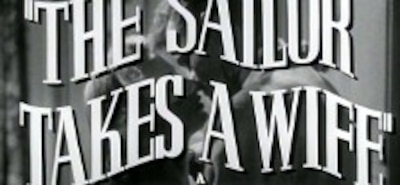The Sailor Takes a Wife

Brief Synopsis
Cast & Crew
Richard Whorf
Robert Walker
June Allyson
Hume Cronyn
Audrey Totter
Eddie "rochester" Anderson
Film Details
Technical Specs

Synopsis
In New York City, on an October night in 1944, John Hill, a sailor from California, shares a carriage ride and a kiss with Mary Breckenridge, a young stenographer he met only six hours earlier. John and Mary are married later the same night, and immediately begin planning the honeymoon they hope to take when John returns from his military base. The following day, Mary tells her boss, Freddie Potts, a pot manufacturer, that she has married a sailor. Although Freddie himself had hoped to marry her, he helps Mary find a new apartment. John returns to the city two days earlier than expected, and tells Mary that he received a medical discharge from the Navy because of a childhood back injury. As the newlyweds settle into their new apartment, they become embroiled in a series of minor disputes, including one angry quarrel that begins when John ridicules Mary's pajamas. One day, John becomes trapped in his apartment building elevator with Lisa Borescu, a beautiful Romanian shop owner. While Harry, the apartment janitor, tries to free the two stranded tenants, John and Lisa become fast friends. Later that afternoon, Lisa tries to help John find an advertising job at a company owned by her wealthy friend, Mr. Amboy. In the hope of impressing John's future boss, Mary invites Mr. Amboy to a home-cooked meal. Freddie and Lisa are also invited to the dinner, and Freddie arrives bearing a gift of pots for the newlyweds. When Mr. Amboy, a plastic pot manufacturer, presents Mary with his company's pots as a gift, Freddie is angered and becomes argumentative with Mr. Amboy. The evening ends in disaster when John trips and accidentally spills the dinner on Freddie and Mr. Amboy. Freddie leaves the dinner party in a rage, and while Mr. Amboy leaves to change his clothes, Lisa tricks John into visiting her in her apartment. There, Lisa flirts with John, gets him drunk and sends him home with lipstick stains on his face. Believing that John is having an affair with Lisa, Mary becomes upset and locks herself in the bedroom. The next day, on Mary's birthday, John tries to make amends with his wife by cooking her dinner and buying her a black lace nightgown. The plan nearly works until a lavish gift sent by Freddie arrives, and John becomes jealous. A quarrel ensues, and Mary goes to Freddie's seeking comfort. John follows Mary to Freddie's, where he threatens to harm Freddie if he continues to meddle in their marriage. All ends happily, though, when Lisa helps John and Mary reconcile, and the couple agrees to put aside their petty quarreling.

Director

Richard Whorf
Cast

Robert Walker
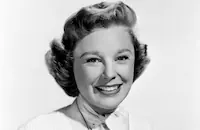
June Allyson

Hume Cronyn

Audrey Totter

Eddie "rochester" Anderson
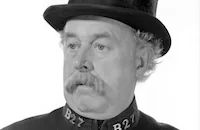
Reginald Owen
Gerald Oliver Smith
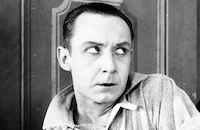
Franklin Pangborn

Fortunio Bonanova
Roland Dupree
Henry Hall
Anna Q. Nilsson
Sara Berner
Mary Lord
Marek Windheim
Shimen Ruskin
Moyna Macgill
Chester Clute
Joe Derita
Betsy Stoddard
Harry Tyler
Eileen Morris
Harry Hayden
Katharine Booth
Jack Luden
Johnny Lane
John Carlyle
Nelson Leigh
George Sorel
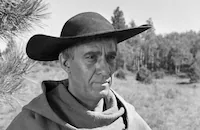
Martin Garralaga

Phillip Pine
Marie Harmon
Mary Bovard
Eugene Sigaloff
Mary Jane French
Lillian Yarbo
Jane Green
Crew
Charles J. Burbridge
Kay Carter
Anne Morrison Chapin
Whitfield Cook
Mark Davis
Chester Erskine
Cedric Gibbons
A. Arnold Gillespie
Johnny Green
Jack Greenwood
Irene
Bill Kaplan
Edwin H. Knopf
Standish J. Lambert
Leo Linder
M. J. Mclaughlin
Warren Newcombe
Ralph A. Pender
George Richelavie
John Schmitz
Douglas Shearer
Robert W. Shirley
Newell Sparks
Herbert Stahlberg
William Steinkamp
Michael Steinore
Sidney Wagner
Irvine Warburton
John A. Williams
Edwin B. Willis

Film Details
Technical Specs

Articles
The Sailor Takes a Wife
By Violet Levoit

The Sailor Takes a Wife
Quotes
Trivia
Notes
Working titles for this film were John and Mary and For Better, For Worse.



